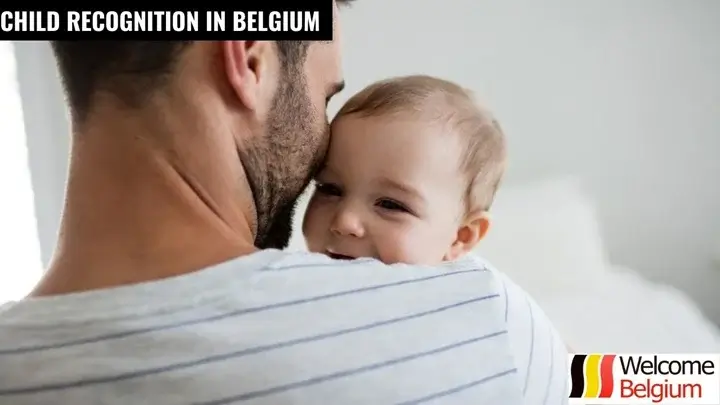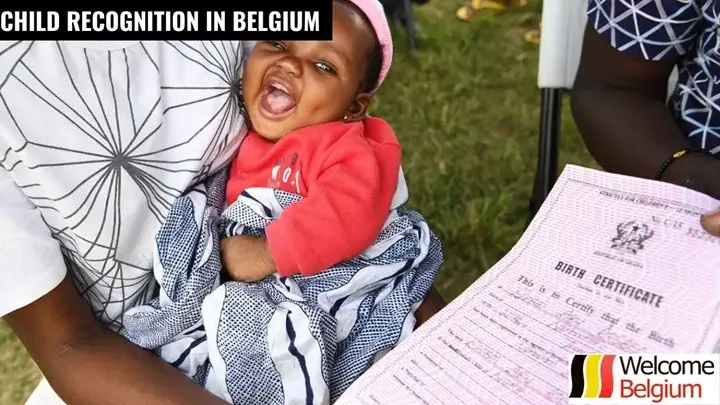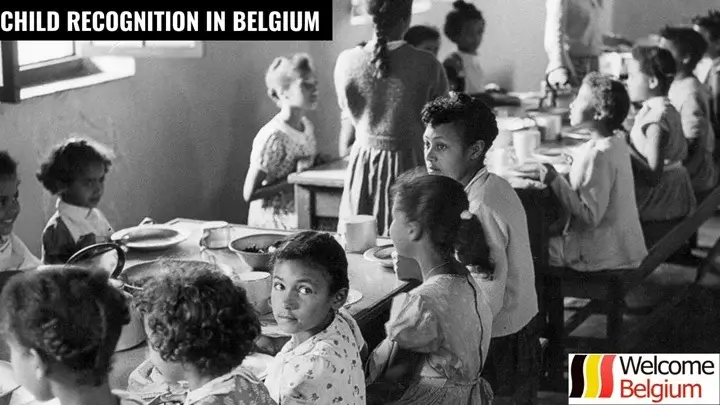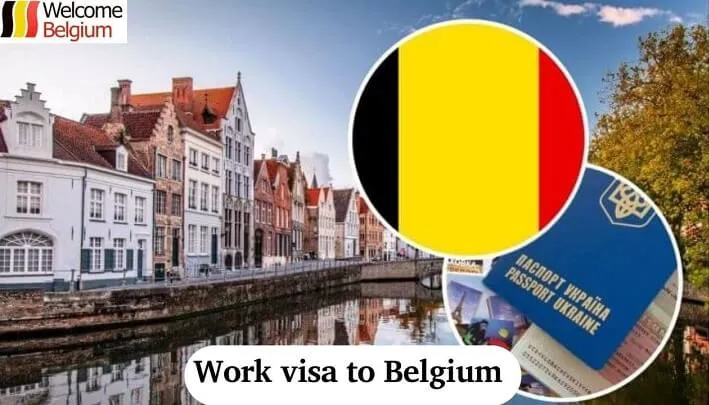Child recognition in Belgium is an important legal process that allows you to establish paternity and ensure that the child has all the rights due to him. The procedure is governed by strict rules and requires the preparation of the necessary documents. For foreign citizens in Belgium, there may be additional nuances that are important to consider. Learn about the key aspects of child recognition to prepare for the process as effectively as possible.
Legal basis
Recognition of a child in Belgium is a legal procedure that formalizes paternity or maternity. It is necessary to ensure the child’s rights, such as citizenship, inheritance and social protection. This process is regulated by the Belgian Civil Code, as well as by the laws on family relations, taking into account the status of the parents. For foreigners, additional international family law rules may apply in Belgium.
Legal acts and documents recognizing a child in Belgium:
- Belgian Civil Code: Basic provisions on the recognition of a child and its consequences.
- Available at: Belgium.be
- Telephone for consultations: +32 2 500 45 11
- International Convention on the Rights of the Child: Regulation of Issues Related to Foreign Citizens.
- Information: unicef.org
- Family Relations Act: regulates the procedure for entering a record of a parent into the civil registry.
- Cost of the service: about 50 euros (may vary depending on the region).
- Waiting period: 1-2 weeks after application submission.
- Documents for recognition:
- For local residents: identity card, child’s birth certificate, recognition statement.
- For foreigners: passport, residence permit, translation of documents into French, Dutch or German.
Failure to comply with the procedure for recognizing a child in Belgium can lead to serious consequences. The parent may face administrative fines and, in some cases, the inability to formalize citizenship or inheritance rights for the child. For foreigners, additional violations may complicate the process of obtaining a residence permit. Compliance with all requirements is the key to a successful completion of the process. Otherwise, there will be consequences from the guardianship and trusteeship authorities of the country.
Find out more about Ghent in our article.
Tip: In Belgium, recognition of a child can be obtained even before birth, which simplifies subsequent registration.
Recognition procedure
Recognition of a child in Belgium is an official process that requires compliance with all legal formalities. To successfully complete the procedure, it is important to collect the necessary documents in advance and study the procedure. This will help to avoid unnecessary delays and complications. It is important to take into account that the requirements may differ depending on the status of the parents and the citizenship of the child.
The stages of child recognition in Belgium in detail:
- Preparation of documents:
- Child’s birth certificate
- Parents’ identity documents
- If necessary – translation and legalization of documents
- Contacting the Municipality (Commune):
- Address: your local municipality (address to be specified depending on where you live)
- Website: www.belgium.be
- Phone: The contact number is listed on the municipality website
- Timeframe: application review takes from 2 to 4 weeks
- Cost: The procedure is usually free, but check the details on site
- Consideration of the application:
- Checking all documents and establishing legal grounds for recognition
- Registration of recognition:
- Obtaining an official document confirming the child’s recognition
The most common mistakes during the procedure are an incomplete set of documents, incorrectly executed translations or the absence of an apostille on foreign documents. Another common problem is failure to comply with the deadlines for filing an application for paternity. To avoid unpleasant situations, it is important to consult with a lawyer or municipal employee in advance. Pay attention to every detail so that the process goes smoothly.
You can find out about city breaks in Brussels in this article.
Important: in Belgium, a father can acknowledge a child even before his birth, which simplifies subsequent registration.
Features for foreign citizens
Foreign citizens residing in Belgium face some additional requirements when recognizing a child. It is important to take into account the specifics of the country’s legislation, as well as prepare the translation and legalization of documents issued outside Belgium. Understanding the stages of the procedure helps to avoid unnecessary delays and complications.
Stages of recognition of a child for foreign citizens:
- Preparation of documents: translated and legalized birth certificates, parent’s passport.
- Address: local municipality of Belgium (commune).
- Website: consult your commune’s official site.
- Cost: from 50 to 100 euros (including translations).
- Contacting the local registration authority (commune): filing an application for recognition.
- Waiting time: 2-4 weeks.
- Address: office at your place of residence.
- Application approval: verification of documents and confirmation of the child’s status.
- Telephone: check with your commune.
- Obtaining supporting documents: issuance of the final recognition document.
The most common mistakes during the procedure include an incomplete set of documents, non-compliance with legalization requirements, and incorrect translation. It is important to check all conditions in advance and consult with municipal authorities. Avoiding such mistakes significantly speeds up the process and reduces the likelihood of refusal.
Want to know more about the sea in Belgium? Read our article.
Advice: check the list of required documents with the municipality in advance to avoid surprises.
Consequences of recognition
Once a child has been recognised in Belgium, both legal and social rights and obligations are established that concern both the parents and the child. Recognition by the father of the child gives him equal rights with children born in marriage. This affects maintenance obligations, inheritance rights and many other aspects. The expected consequences of recognition cover a wide range of legal norms that are important to understand in order to properly complete all documents.
Rights and obligations after recognition:
- Official establishment of paternity.
- The obligation to pay alimony.
- Right to inheritance from father.
- Possibility of obtaining the father’s surname.
- Rights to health care and support.
- Establishing the child’s citizenship (if the parent is a Belgian citizen).
- The right to obtain a visa and travel to other countries.
- Recognition of a child for social assistance.
- The ability of the father to provide other legal documents, such as a birth certificate.
Recognition of a child in Belgium has a significant impact on his or her family name and citizenship. The child can receive the father’s family name and also the right to Belgian citizenship if the father is a Belgian citizen. This opens up additional opportunities for the child, including access to social and health services.
Interesting article about the Gravensteen castle museum.
Important: Recognition of a child in Belgium is an important step that affects not only the child’s rights but also his or her future, including citizenship and inheritance rights.
Possible difficulties and recommendations
- What documents are needed to recognize a child in Belgium? To recognize a child in Belgium, you must provide a birth certificate, documents confirming the identity of the parents, and possible documents confirming the relationship.
- Is it possible to recognize a child in Belgium if the father is not in the country? Yes, recognition is possible, but certain legal procedures must be followed, such as filing an application through a consulate or issuing a power of attorney.
- What to do if the father does not agree to acknowledge the child? If the father does not agree, it is necessary to go to court to establish paternity. The court can make a decision based on a DNA test or other evidence.
- How does the recognition of a child affect alimony? The recognition of a child entails the obligation to pay alimony if the father does not live with the child and does not have other financial obligations.
- Can a mother recognize a child without the father’s consent? A mother can recognize a child in court without the father’s consent if the father does not object to the recognition or if paternity cannot be established.
- How does recognition of a child in Belgium affect the child’s citizenship? Recognition of a child entails the right to Belgian citizenship if one of the parents is a Belgian citizen.
- What are the consequences for the child’s surname after recognition? After recognition, the child can receive the father’s surname if the parent decides that the child will bear his surname.
- What rights does a child have after being recognized by his father in Belgium? A recognized child has rights to alimony, inheritance from his father, citizenship (if applicable) and social protection.
- How to avoid legal complications when recognizing a child? To avoid problems, it is recommended to consult a lawyer in advance, prepare all necessary documents and follow established laws and procedures.
- What to do if the child’s confession was erroneous? In case of an error, you need to go to court to correct the entry or cancel the confession if it was made by mistake or falsification.
- Is it possible to challenge the recognition of a child after its registration? Yes, it is possible to challenge the recognition of a child in court, but for this it is necessary to provide convincing evidence.







